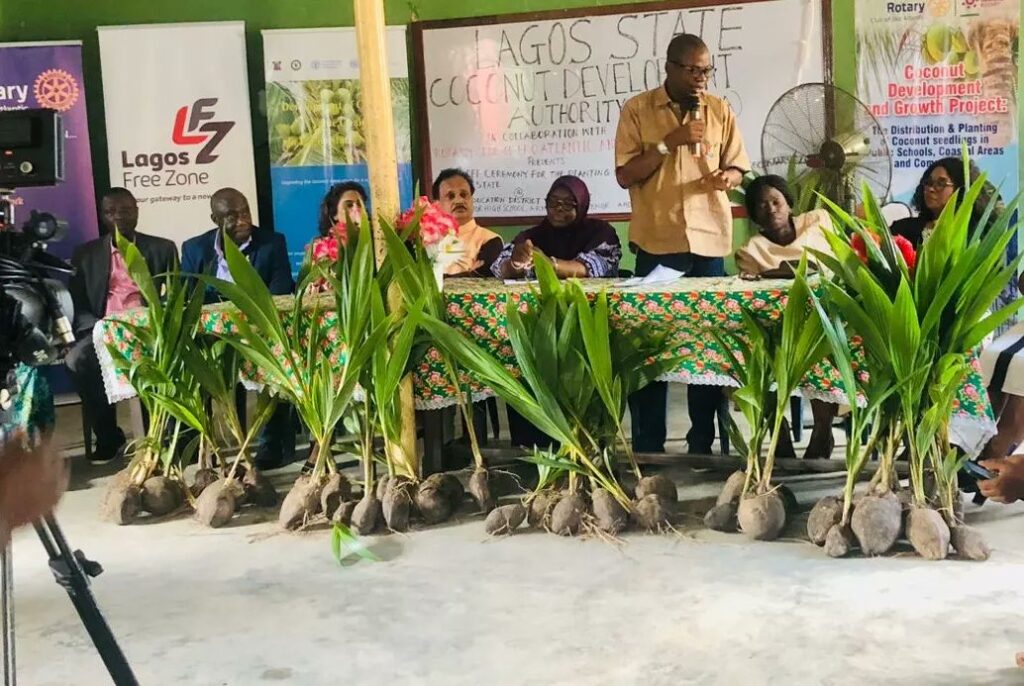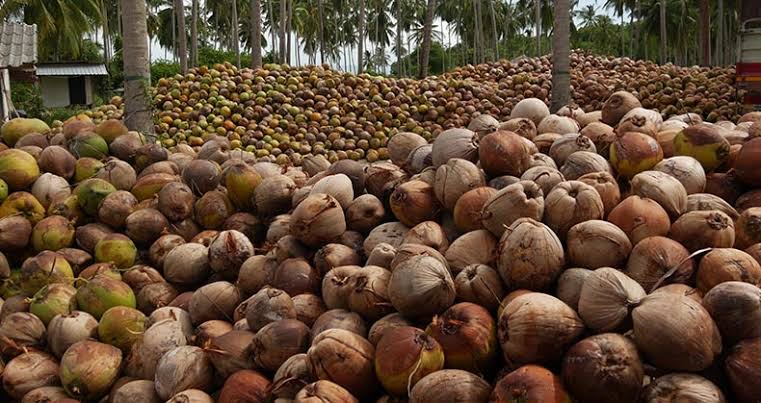Changing lifestyles are increasing the demand for coconuts, forcing Nigerian farmers to increase investments to capitalize on the coconut market.
Health-conscious Nigerians are turning to coconuts to treat diabetes, weight loss, high blood pressure, and premature aging.
As revealed by Grand View Research, a research firm, the global coconut market is expected to reach $20.24 billion in 2022 and grow at a compound annual growth rate (CAGR) of 8.4% from 2023 to 2030.
According to Statista, global coconut production was 62.41 million tonnes.
Based on data from the Food and Agriculture Organization (FOA), Nigeria ranks 18th in the global coconut production index, producing about 225,526 tonnes of coconuts in 2021. Lagos, which produces half of the production, has doubled its production from 70,000 tons to 140,000 tons in the last 20 to 30 years to meet demand.
Farmers said the number of registered coconut processors in Lagos state has increased from 500 to 3,000 in the five years to 2024.

“Lifestyle and healthy living are fueling a huge demand for coconut products locally and globally,” John-Bede Antonio, chairman and founder of First African Coconut Company Limited, said in an interview.
Antonio noted that the huge demand has led to increased investments across the value chain as farmers grow more coconuts to meet the growing demand.
“The production of coconut is rising in the country. Several farmers are now deliberately going into coconut production and making huge investments in its cultivation to meet demand,” he said.
He added that the Lagos State Government is also providing support to new farmers in the form of seedlings and training.
Coconut farmers are now replacing old trees with hybrid seedlings that fruit faster.
Coconuts have a variety of uses, they serve as raw materials for industries such as pharmaceuticals, cosmetics, food, and beverages, and the domestic and export potential is endless. The most popular ingredient of this fruit is coconut water, which is very rich in potassium and other electrolytes. It is considered a healthy drink and is especially recommended for diabetics.

Coconut is grown in 22 of Nigeria’s 36 states, with Lagos being the largest producer.
Mr. Olakulehin Oladapo, General Manager, Lagos State Coconut Development Authority (LASCODA), said, “The use of coconut oil and other derivatives is growing daily owing to its health benefits,”
He said more people in major producing states are now involved in the cultivation, processing, and distribution of this marketable fruit, which is boosting local coconut production. He confirmed that the number of registered coconut processors in Lagos State has increased from 500 almost five years ago to 3,000 today, noting that this increase has led to an increased demand for coconut commodities.
Oladapo explained that despite increased production, the state is still unable to meet the demand, which is mostly met through imports from neighbouring countries.
National Treasurer, National Association of Nigerian Coconut Growers, Processors and Marketers (NACOPPMAN), Idowu Agbelekale said, “Increasing demand is driving new investments into the production and processing of coconut in the country,”

She explained that entrepreneurs are already exporting some of the by-products of the crop on a small scale.
Agberekare said Nigeria is yet to fully realize the economic benefits of cultivating the crop, despite its huge potential, and urged the government to increase production of the crop to earn foreign exchange for the country.
The Lagos State Government is also helping farmers get better seedlings as it plans to remain a leader in growing the produce in the country while creating jobs and increasing supplies to processors.
Coconut fibre, a fibre from the coconut shell, is used to make ropes, carpets, mats, brushes, bags, seal boats, and stuffing for fibre mattresses.
The leaves (foliage) are used for brooms and skewers, woven into mats, or burned to ash to make lime. The shells and husks are used to make charcoal, which can be used as fuel.
Chinwe Chukwu, an accountant at a manufacturing company in Ikeja, told Journalist, “I started using coconut oil on my hair in 2022 owing to its health benefits and have not applied any other oil to my hair since then.”
Experts say the increased demand is being felt by all industries that use coconut as an input, suggesting prices will continue to rise.
According to a Reporter’s Lagos market survey, the price of coconut has increased by more than 100 percent from an average of 250 naira in January 2024 to an average of 500 naira for a small size now.

































